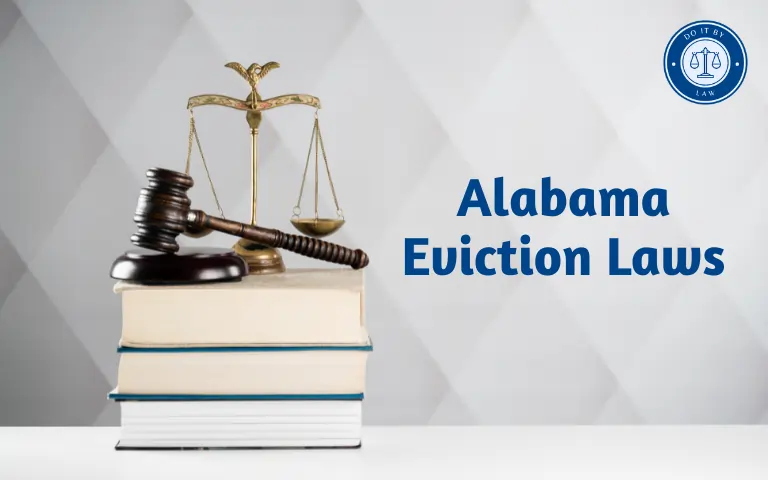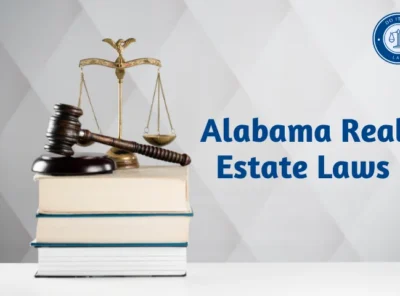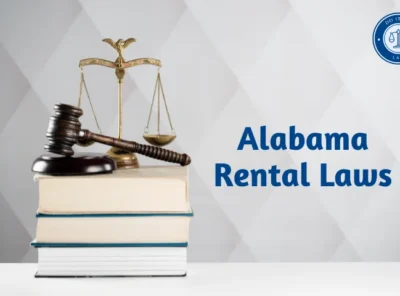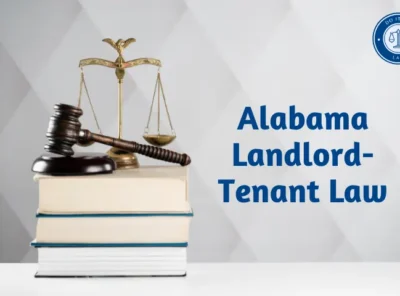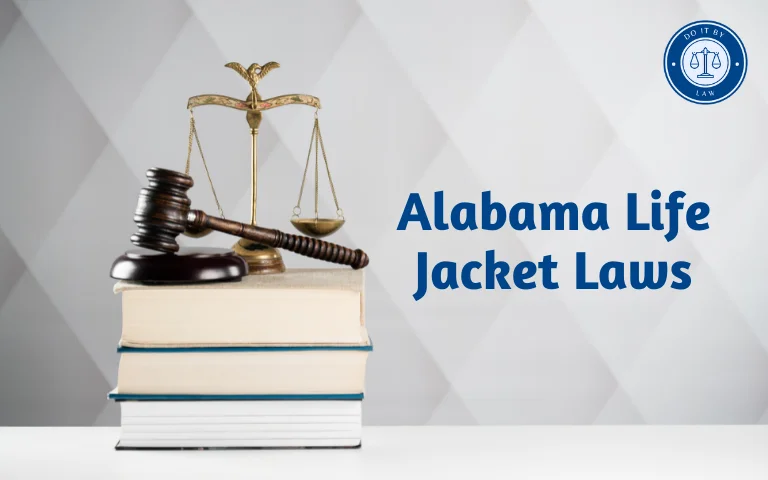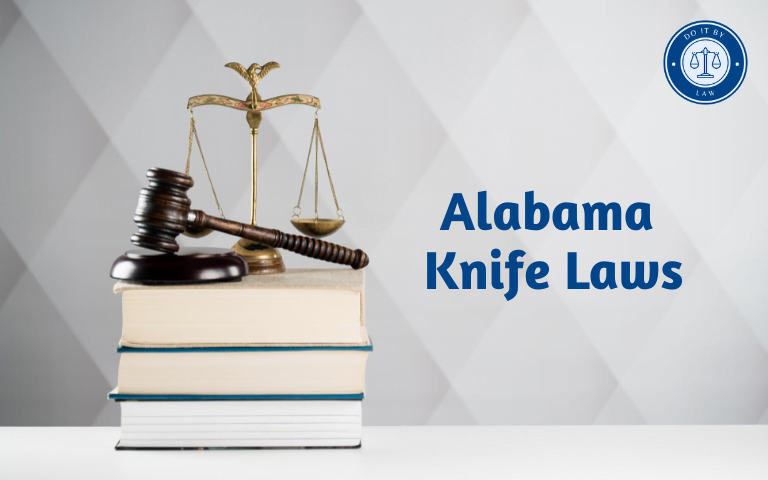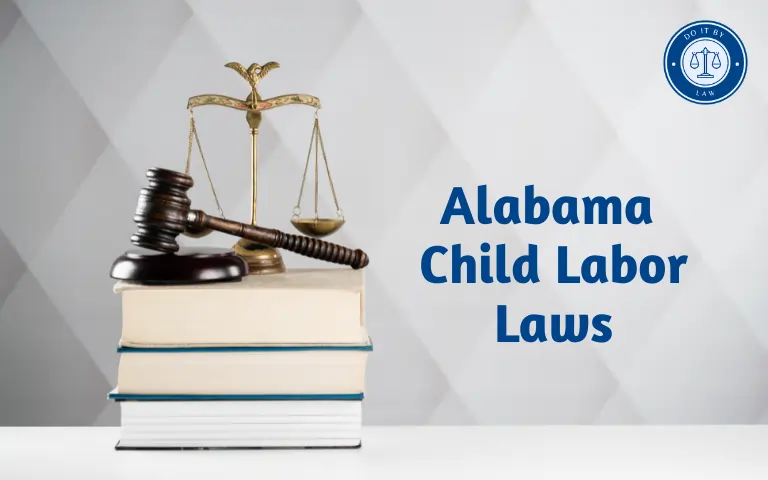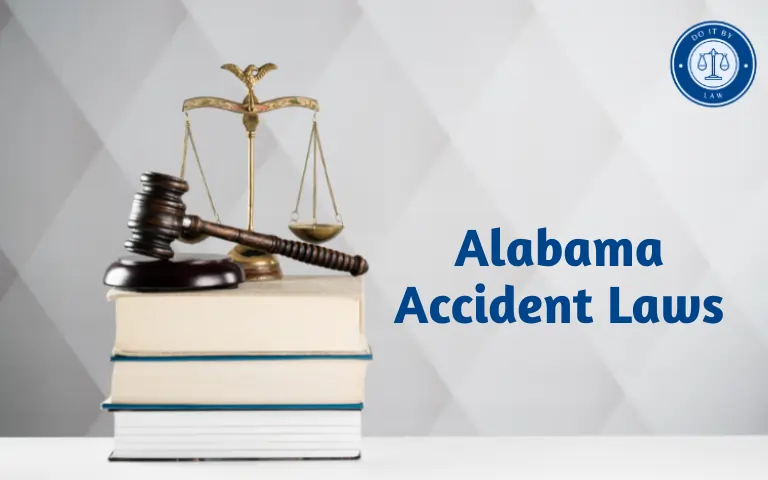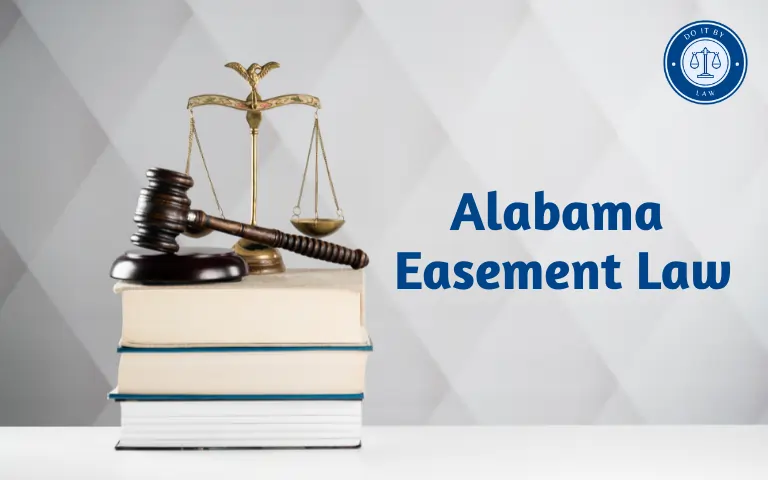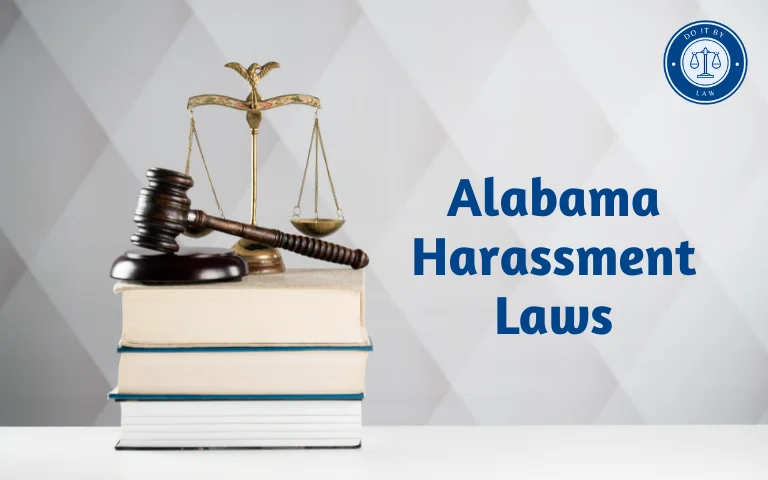Alabama Eviction Laws: What You Need to Know
Alabama landlords must follow specific procedures and requirements when removing tenants under the state’s eviction laws. Likewise, renters should understand their rights and responsibilities when facing potential eviction. This guide covers key aspects of Alabama’s eviction process, reasons for eviction, tenant defenses, and recent changes to the laws.
Overview of Eviction Process in Alabama
In Alabama, landlords must go through the following steps to legally evict a tenant:
- Provide proper written notice detailing lease violations
- File an eviction lawsuit if violations continue after notice period
- Serve tenant with eviction summons and complaint
- Attend court hearing where tenant can defend case
- Court issues judgment and writ of possession
- Sheriff enforces writ to remove tenants if found guilty of eviction
Evictions typically take 1-3 months from start to enforcement. Landlords cannot personally remove or lockout tenants outside this legal process.
Key Points:
- No unwarranted evictions: Landlords cannot simply kick you out without a valid reason. They must have “probable cause,” such as non-payment of rent, lease violations, or property damage.
- Specific notice requirements: Depending on the reason for eviction, landlords must serve you with a written notice informing you of the issue and the potential consequences. These notices include:
- 7-day Notice to Pay: For non-payment of rent.
- 7-day Notice to Comply: For minor lease violations.
- 7-day Notice to Quit: For serious lease violations or other reasons like providing false information on the rental application.
- New 30-day pre-filing notice (as of 2023): Landlords must now give tenants a 30-day written notice before filing for eviction in court, except for non-payment of rent. This gives you time to address the issue or seek legal counsel.
- Tenant rights and options: You have rights throughout the eviction process. You can contest the eviction in court, propose a payment plan to avoid eviction (for non-payment), and seek legal assistance.
Background of Alabama Eviction Laws
Alabama eviction laws are governed by the Alabama Uniform Residential Landlord Tenant Act (AURLTA). AURLTA was passed in 2006 to standardize and clarify the eviction process in Alabama.
The Alabama Regulations outlines reasons a tenant can be evicted, the notice landlords must provide, how to file an eviction lawsuit, and the court process for removing a tenant. AURLTA protects landlord and tenant rights during evictions.
Who Do Alabama Eviction Laws Apply To?
Alabama eviction laws apply to a wide range of people, including:
Tenants:
- Occupants of residential dwellings: This includes houses, apartments, mobile homes, and other types of rental units used as primary residences.
- Both month-to-month and lease-holding tenants: The specific eviction process and notice requirements may differ slightly depending on the type of tenancy, but the overall principles apply to both.
- Subtenants: If you are a subtenant, you may have additional protections or restrictions depending on the terms of your sublease agreement and the master lease agreement between the landlord and the primary tenant.
Landlords:
- Owners or property managers of residential rental units: This includes individuals, corporations, and any entity responsible for managing the rental property.
- Agents acting on behalf of the landlord: This includes property managers, leasing agents, and anyone authorized to represent the landlord in eviction matters.
Exemptions:
While the laws generally apply to these groups, there are some exemptions:
- Guests and temporary occupants: People staying for a short period, such as overnight guests, are not considered tenants and therefore not subject to eviction laws.
- Licensees or occupants with no tenancy agreement: If you occupy the property under a license agreement or have no formal agreement, your rights and the eviction process may differ.
- Government-owned properties: Eviction from government-owned housing may follow different procedures depending on the specific government agency involved.
It’s important to note that the specific rights and responsibilities of both tenants and landlords under Alabama eviction laws can be complex and may vary depending on the circumstances.
Reasons a Tenant Can Be Evicted in Alabama
In Alabama, landlords can legally evict tenants for the following lease violations:
Failure to Pay Rent
If a tenant does not pay rent on time or in full, the landlord can give a written notice to pay or vacate. If the tenant fails to pay within the notice period (typically 7 days), the landlord can file for eviction.
Lease Violations
Tenants who violate their lease agreement in ways besides not paying rent can also face eviction. Lease violations may include:
- Damaging the property
- Having unauthorized guests
- Disturbing other tenants
- Engaging in criminal activity
The lease agreement spells out activities that could lead to eviction. Landlords must prove the tenant violated a clear, reasonable lease term.
Holdover Tenants
When a lease ends, tenants who stay in the property without signing a new lease become “holdover tenants.” Landlords can evict holdover tenants with proper notice (typically 30 days).
Foreclosure Evictions
If a landlord loses a rental property to foreclosure, the new owner can evict existing tenants with 30 days written notice in Alabama.
Violence, Drug Use, Illegal Activity
Tenants who engage in violence, drug dealing, prostitution, or other unlawful behavior in a rental unit or common areas can be evicted. Landlords do not have to allow criminal activities to continue.
Eviction Notice Alabama
Getting kicked out of your home, or “evicted”, is a stressful situation no one wants to deal with. If you rent your home in Alabama and get behind on rent or violate your lease, your landlord has to provide you with a written warning first. This is called an eviction notice.
Before filing for eviction, Alabama landlords must provide tenants with a written eviction notice as required by Alabama state law. The Alabama eviction notice period depends on the reason for the eviction:
An eviction notice in Alabama is a formal document that informs a tenant that they must vacate the rental property within a specified period of time. The type of notice required and the timeframe for vacating depend on the reason for the eviction. Here’s a breakdown of the different types of eviction notices in Alabama:
1. 7-Day Notice to Pay:

- Issued for non-payment of rent.
- Gives the tenant 7 days to pay the full amount of rent owed to avoid eviction.
- If the rent is not paid within 7 days, the landlord can file for eviction in court.
2. 7-Day Notice to Comply:

- Issued for minor lease violations, such as disturbing the peace, keeping unauthorized pets, or failing to maintain the property.
- Gives the tenant 7 days to correct the violation.
- If the violation is not corrected within 7 days, the landlord may file for eviction in court or terminate the lease agreement.
3. 7-Day Notice to Quit:

- Issued for serious lease violations, such as damaging the property, engaging in illegal activity, or repeatedly disturbing the peace.
- Gives the tenant 7 days to vacate the property.
- If the tenant does not vacate within 7 days, the landlord can file for eviction in court and obtain a court order to remove the tenant from the property.
Important Note: As of 2023, Alabama law requires landlords to give tenants a 30-day written pre-filing notice before filing for eviction in court, except for non-payment of rent. This means that even if the tenant receives a 7-day notice, they have an additional 30 days to address the issue or seek legal assistance before the landlord can take them to court.
Eviction Court Process in Alabama
If a tenant fails to fix the lease violation within the notice period, the landlord must take the following legal steps to remove them
Before Court:
- Landlord Serves Notice: The landlord must serve you with the appropriate eviction notice depending on the reason for eviction (non-payment, lease violation, etc.).
- 30-Day Pre-filing Period (Except for Non-payment): As of 2023, landlords must wait 30 days after serving the notice before filing for eviction, unless the reason is non-payment of rent. This period allows you time to address the issue or seek legal help.
- Tenant Options: You have options during this period:
- Pay the rent owed: If it’s non-payment, paying the full amount within the notice period usually stops the eviction process.
- Correct the violation: If it’s a lease violation, taking action to resolve the issue can prevent further action.
- Negotiate with the landlord: You can attempt to negotiate a payment plan or reach an agreement to stay in the property.
- Seek legal assistance: Consulting with a lawyer can help you understand your rights and options.
In Court:
- Landlord Files Complaint: If you don’t resolve the issue within the allotted time, the landlord files a complaint with the court.
- Court Summons: You’ll receive a court summons notifying you of the hearing date and time.
- Court Appearance: You have the right to appear in court to contest the eviction.
- Evidence Presented: Both the landlord and you (or your lawyer) present evidence and arguments to the judge.
- Judge’s Decision: The judge will listen to both sides and issue a decision. If the judge rules in favor of the landlord, they will issue a Writ of Restitution.
After Court:
- Vacating the Property: If the judge orders eviction, you must vacate the property within the specified timeframe.
- Removal from Property: If you don’t vacate voluntarily, the landlord can seek assistance from the sheriff to remove you from the property.
Important Notes:
- Deadlines: Missing deadlines can negatively impact your case. Seek legal help if you need guidance on responding to notices and appearing in court.
- Documents: Keep copies of all notices, receipts, and any other relevant documents.
- Legal Assistance: While not mandatory, legal representation can significantly increase your chances of a favorable outcome.
Alabama Eviction Timeline
- Notice period: 7-14 days depending on the notice type.
- 30-day pre-filing period: Applies to most reasons except non-payment.
- Court process: Varies depending on the complexity of the case.
- Appeal period: Typically 14 days after the judge’s decision.
Remember, navigating the eviction court process can be stressful. Utilizing available resources and seeking legal counsel when needed can help you protect your rights and manage the situation effectively.
Tenant Defenses Against Eviction
If a landlord alleges breach of lease, Alabama law allows tenants to argue:
- Violations did not occur or were justified
- Landlord did not provide adequate notice
- Landlord failed property maintenance duties
- Eviction violates fair housing laws
- Landlord retaliation for exercising tenant rights
Documenting all communications, rental payments, and maintenance requests is key to supporting tenant defenses.
Role of Legal Aid Groups
Low-income tenants can consult legal aid organizations like Alabama Legal Services for free or low-cost assistance defending against evictions. These groups can provide:
- Legal advice on tenant rights/defenses
- Review of eviction notices and documents
- Court representation or assistance filing replies
- Referrals to emergency rental assistance programs
Understanding both landlord and tenant rights and responsibilities under Alabama eviction law is key to navigating lease disputes. Following proper procedures can help mitigate risks for all parties.
Recent Changes to Alabama Eviction Laws
Alabama eviction laws underwent some temporary changes during the COVID-19 pandemic:
- A federal eviction moratorium prevented the removal of nonpaying tenants for part of 2020-2021.
- The Alabama COVID-19 Eviction Moratorium provided renters impacted by the pandemic with up to 60 days to respond to an eviction notice for nonpayment if they provided a declaration of hardship.
These emergency measures have now expired. Eviction procedures have returned to normal status under AURLTA.
Controversies and Challenges with Alabama Eviction Laws
Consumer advocacy groups argue Alabama eviction laws still favor landlords over tenants in some areas:
- Short notice periods
- Allowing eviction for a single late rent payment
- Loose definitions of lease violations
- Difficulty contesting evictions with limited legal representation
Landlord groups counter that AURLTA provides a fair, clearly defined process for removing disruptive, nonpaying tenants while protecting tenant rights.
Reform debates continue, but meaningful changes to Alabama eviction laws do not appear likely soon. The legal framework remains similar to AURLTA’s original 2006 provisions.
Mistakes That Delay Evictions in Alabama
Evictions can sometimes drag on longer if landlords make procedural mistakes like:
- Insufficient notice – Written notice periods are mandatory
- Improper notice service – Tenants must be properly served
- Filing in the wrong court – Must use the district court in the county where the rental is located
- No lease presented – Lease or rental agreement must be provided
- No evidence given – Landlord must prove lease violation or nonpayment
- Technical errors – Paperwork must meet all requirements
Avoiding these mistakes speeds up legal eviction. Experienced Alabama landlords learn how to navigate the system efficiently. But following proper processes protects tenant rights in the state.
Understanding the standard eviction timeline in Alabama allows landlords to set expectations and proceed through the legal process efficiently. While expediting bad tenant removal is desirable, observing notice requirements and tenant rights remains imperative.
Alabama Eviction Laws for Family Members
Evicting a family member or relative from your Alabama home can be challenging, but Alabama eviction laws for family members provide procedures for removing unwanted house guests. Here are key steps for family evictions.
Alabama eviction laws for family members can be complex and differ from standard tenant-landlord situations. Here’s a breakdown to help you navigate this sensitive issue:
General Principles:
- No blanket eviction: Even with family, eviction requires a valid reason and proper legal procedures.
- Increased scrutiny: Courts may scrutinize eviction of family members more closely due to potential emotional and financial hardship to the occupant.
- Documentation crucial: Maintain clear documentation of rent payments, agreements, and communication to protect your rights.
Specific Scenarios:
- Living with parents or adult children: If you live with parents or adult children, you’re not automatically considered a tenant. You may be considered a licensee, guest, or co-tenant, impacting your eviction rights.
- Verbal agreements: Verbal agreements, while valid, can be difficult to enforce in court. Written agreements outlining tenancy terms are highly recommended.
- Financial contributions: Contributing towards household expenses can strengthen your claim to residency and potentially complicate eviction proceedings.
Eviction Notices:
- Standard notices: Even for family members, landlords must follow the standard eviction notice requirements based on the reason for eviction (e.g., non-payment, lease violation).
- 30-day pre-filing notice: As of 2023, most eviction cases require a 30-day written notice before filing for court, giving family members additional time to address the issue.
Alternatives to Eviction:
- Mediation: Consider family mediation to resolve disagreements and reach mutually agreeable solutions before resorting to legal action.
- Financial assistance: Explore options like temporary financial assistance to help family members overcome rent arrears and avoid eviction.
- Moving arrangements: Discuss alternative living arrangements within the family to avoid eviction and maintain relationships.
Remember: Evicting a family member can be emotionally and legally challenging. Seek legal counsel and explore alternative solutions before resorting to eviction.
How to Evict a Roommate With No Lease in Alabama
Ending cohabitation with a troublesome roommate in Alabama requires following lawful eviction protocols even without a formal lease. Here are tips for removing a roommate not on the lease from a shared dwelling.
1. Determine Your Right to Evict:
- Joint tenancy: If you and your roommate are joint tenants on the lease, you generally need their consent to evict them. Exceptions may exist, such as if they’re endangering the property or other occupants.
- Tenancy at will: If you have no lease and your roommate is considered a tenant at will (meaning they live there with your permission but no formal agreement), you have more leeway to evict them.
2. Provide Proper Notice:
- 30-Day Notice to Vacate: As of 2023, Alabama law requires landlords to give tenants a 30-day written notice to vacate, even for tenants at will. This notice should be clear, specific, and delivered in a verifiable manner (e.g., certified mail, hand delivery with signature).
3. Consider Mediation:
- Before resorting to legal action, consider attempting mediation. This can help you resolve the issue amicably and potentially avoid court costs and emotional distress.
4. File for Eviction in Court:
- If mediation fails and your roommate doesn’t vacate within the notice period, you can file for eviction in court. This process can be complex and requires careful preparation. It’s highly recommended to seek legal counsel from a lawyer who specializes in landlord-tenant law.
5. Obtain a Writ of Possession:
- If the court rules in your favor, you’ll receive a Writ of Possession. This document authorizes the sheriff to remove your roommate from the property if they still refuse to leave.
Additional Tips:
- Document everything: Keep copies of all notices, communication with your roommate, and any other relevant documents.
- Know your rights and responsibilities: Familiarize yourself with Alabama eviction laws for tenants at will to ensure you’re following the proper procedures.
- Seek legal advice: Consulting with a lawyer can help you understand your options, navigate the legal process effectively, and protect your rights.
Remember, eviction should be a last resort. Open communication, exploring alternative solutions, and seeking legal guidance can help you navigate this situation effectively.
How Much Does it Cost to Have Someone Evicted?
The cost of evicting someone varies widely and depends on several factors, including:
- Location: Laws and court fees differ significantly between states and even within counties.
- Complexity of the case: Uncontested evictions are generally cheaper than contested cases involving legal representation, mediation, or appeals.
- Additional fees: Court filing fees, sheriff’s fees, locksmith costs, and potential damages can add up.
Here’s a rough breakdown of potential costs:
Filing fees:
- Court filing: $200-$400 (average)
- Service of process: $50-$100 per attempt
Legal fees:
- Attorney consultation: $100-$300 (average)
- Full representation: $2,000-$10,000 (average)
Other costs:
- Mediation: $200-$500 (average)
- Sheriff’s fees: $100-$200 per eviction attempt
- Locksmith: $150-$300 (estimated)
- Damage repair: Varies depending on the damage
Important notes:
- These are just estimates, and actual costs can be significantly higher or lower.
- Seeking legal advice is crucial for accurate cost estimations and navigating the eviction process effectively.
- Some resources, like legal aid organizations, can offer assistance at reduced rates or pro bono.
Remember, eviction can be a complex and stressful process. Understanding the potential costs involved and seeking professional guidance can help you make informed decisions and manage the situation effectively.
Eviction Moratoriums in Alabama
During the COVID-19 pandemic, Alabama did not institute a statewide eviction moratorium. However, there were targeted local moratoriums in some cities and counties to halt evictions for nonpayment of rent due to pandemic hardship.
Some of these local moratoriums have now expired. Renters facing financial difficulties should still check if their area currently has any active local moratoriums that could temporarily halt evictions. Renters can also apply for emergency rental assistance funds that may cover back-due rent and allow them to avoid eviction.
Retaliation Evictions
Under Alabama law, landlords are prohibited from taking retaliatory action against tenants who exercise certain rights, such as:
- Complaining about housing code violations
- Joining a tenant’s rights group
- Taking legal action against the landlord
If a tenant believes they are facing a retaliatory or unlawful eviction after exercising these rights, they may be able to defend against the eviction in court under anti-retaliation laws. Consultation with a tenant lawyer is recommended.
Alabama Tenants Rights Association
The Alabama Tenants Rights Association is a non-profit that provides education and legal services for renters facing disputes with landlords, including issues of repairs and evictions. Low-income tenants can obtain legal advice and representation from the organization. They have local chapters serving different counties across Alabama.
Frequently Asked Questions About Alabama Eviction Laws
Key Takeaways on Alabama Eviction Laws and Processes
- Alabama landlords must follow specific notice periods and court procedures to evict tenants
- Acceptable grounds for eviction include not paying rent, lease violations, holdover tenants, and criminal activity
- Recent eviction moratoriums during COVID-19 have expired; normal rules apply
- Alabama eviction laws attempt to balance landlord and tenant rights, but some controversy exists over aspects favoring landlords
By understanding the requirements, landlords can avoid mistakes and ensure evictions follow proper protocol. Tenants also benefit from knowing their rights during the eviction process. Proper compliance with Alabama eviction laws can help maintain fair housing relationships.
Alabama Eviction Resources
- Full text of Alabama Uniform Residential Landlord Tenant Act
- Alabama attorney general landlord-tenant guide
- Alabama Legal Aid eviction information
- Alabama District Court eviction forms
Conclusion
Alabama provides detailed statutes on lawful reasons, notice procedures, and the court process for evicting tenants. Understanding eviction laws allows landlords to properly remove disruptive or non-paying renters while protecting tenant rights. While some controversies exist around aspects favoring landlords, following Alabama eviction process prevents illegal lockouts or forced removals. Overall, compliance with evict

